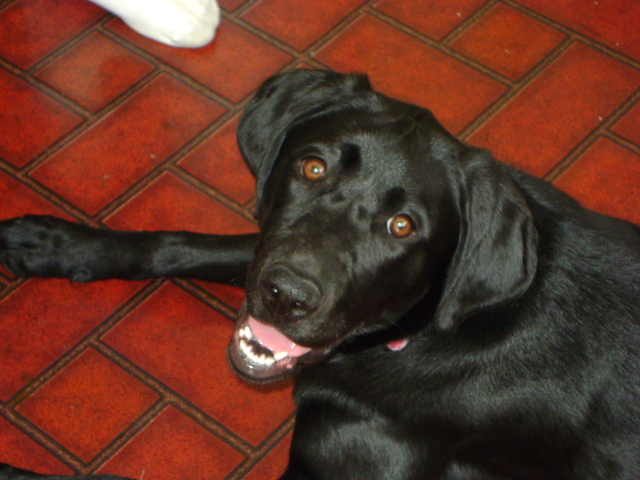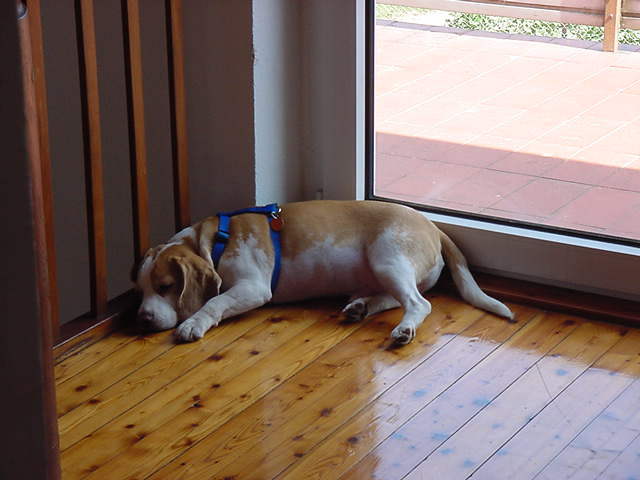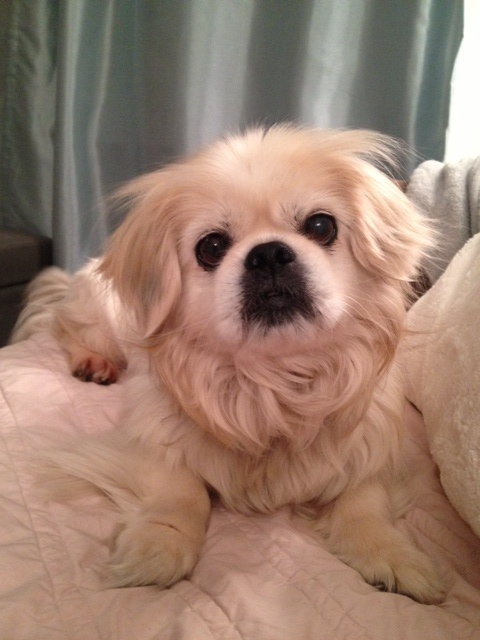QuestionThank you for addressing our concern. Three months ago we lost our 13 year old Boxer to cancer. He slipped slowly away in our home with the help of our Vet surrounded by our love and his companion(our 7 year old female Boxer). Our female started showing signs of nighttime anxiety several months before our male passed. It was all quite sudden that she began sleeping on the second level of our home during the nighttime. We didn't think much of it at the time. Recently her nighttime anxiety condition has become more concerning. She is breathing heavy, and trembles when we start to retire for the evening. Our many attempts to comfort her during her episodes show little to no results. She has the run of the whole house and can sleep anywhere she chooses. (she has several beds located in various areas of our home. During the day she is active, alert, and remains full of joy up to the moment we turn in for the evening-then the anxiety starts up all over again. Anyway, I hope the information in this note provides the detail for your guidance and direction. Thank you!
AnswerI'm so sorry for your loss but what a wonderful way you handled the passing of that dog!
Your female may have begun this behavior in response to the illness of your other dog. Dogs' scent of course is enormously greater than ours and they CAN smell illness, medication, etc., with exquisite ease. Also, the other dog may have been giving subtle body language signals of illness, infirmity, etc. and your female picked up on that. She may have (and seems to have) begun to "guard" and obtain control over this situation (not knowing she could not do so.) Attempting to comfort her is, actually, REWARDING her behavior (dog trembles, person pets: good dog, be afraid). First, restrict her movement well before you retire by confining her to ONE room, with ONE bed. Be quite casual about this and routinely associate this confinement with a special treat (cookie, piece of cheese, etc.) Start by confining her 30 minutes before you begin your retirement ritual (turn off tv, fluff pillows, get water, etc.) Second, block the upstairs so she cannot choose to go up there alone; this is a position of authority, she is valiantly attempting to get control of a situation she does not understand (first the illness, and then the death IN HER PRESENCE, of the other dog.) One thing: TONIGHT do none of these things, instead OBSERVE HER CAREFULLY and OBSERVE YOURSELVES, because you are giving her clear cues that you are "leaving" for the night and you really need to know WHICH CUE begins the problem. THAT is the cue you must eliminate/change. It may be fluffing that pillow on the couch, turning off the lamp, etc. If you absolutely must persist in that behavior, DO IT FIRST, then sit down and wait a few minutes before retiring. Eliminate the strongest cue; confine the dog to one safe area (this is not punishing, it relieves her of the responsibility to take care of your household when you are asleep); in the morning, greet her happily with praise and a hug. If she cries during the night or objects to her confinement, IGNORE IT. She is quite anxious and these new rules will actually help her, but it will take a few weeks. Meanwhile, bring this behavior to the attention of your veterinarian. If the dog does not respond (at least minimally) after a week of this new regimen, she may need night time medication to assist her.

 Black lab - 1 yr
QuestionSheba
QUESTION: My lab loves to bite her
Black lab - 1 yr
QuestionSheba
QUESTION: My lab loves to bite her
 licking the floor not stop
QuestionGeorgie
QUESTION: Hi,
I have a 7 year ol
licking the floor not stop
QuestionGeorgie
QUESTION: Hi,
I have a 7 year ol
 Agressive 1 yr old mini goldendoodle
Question
our millie
My husband and I got our min
Agressive 1 yr old mini goldendoodle
Question
our millie
My husband and I got our min
 Nightmares?
Question
Beethoven
Hi Melissa, Ive had my very h
Nightmares?
Question
Beethoven
Hi Melissa, Ive had my very h
 agressive silky terrier
Question
Lucas 1 year old
Hi Jennifer:
I have a
agressive silky terrier
Question
Lucas 1 year old
Hi Jennifer:
I have a